Cuts in NJ Media Funding Could Silence Voices in Black, Brown Communities
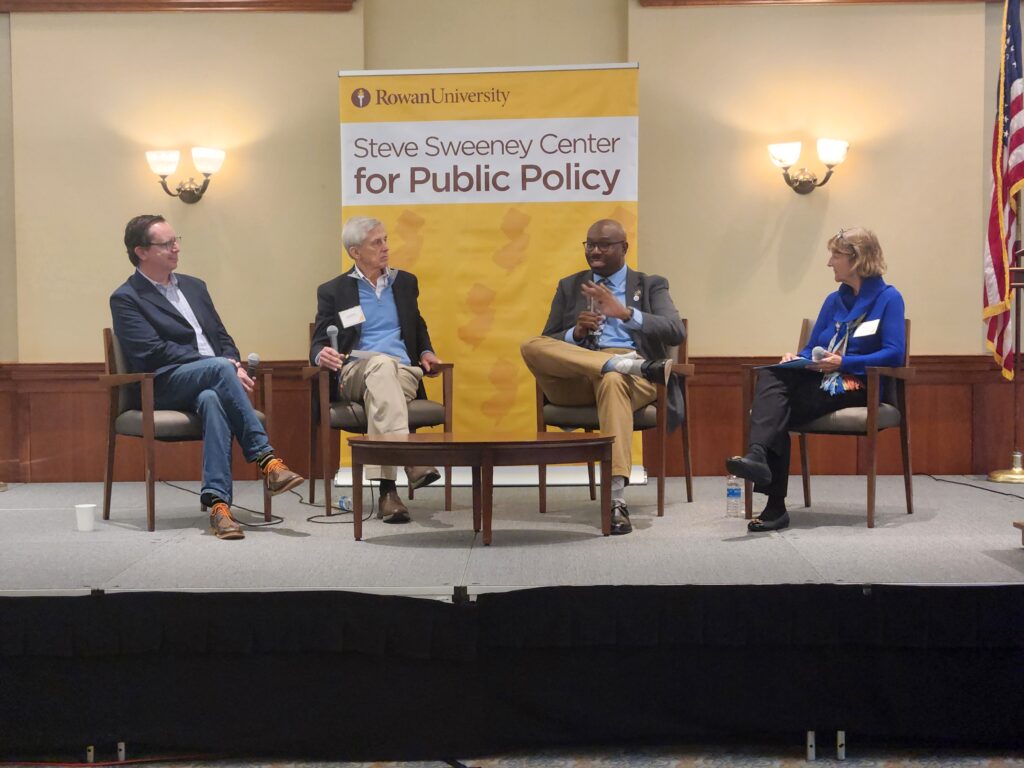
Panelists speaking during the Journalism in the Public Interest session at the Future of Journalism Conference at Rowan University on May 21. Photo by AC JosepH Media.
BY ESSENCE HOLMAN | For AC JosepH Media
GLASSBORO — Black communities in New Jersey — already underserved by mainstream media — may soon face another blow to their access to reliable, community-centered news, according to experts speaking on May 21 at The Future of Journalism: New Models, Digital Transformation and the Public Interest Conference at Rowan University.
The conference, hosted by the Steve Sweeney Center for Public Policy at Rowan’s Chamberlain Student Center, discussed the transformation of the news media with newspapers closing, reporting staff shrinking, and local news coverage in decline around the country.
While innovations are emerging, attendees sounded some alarm bells. A session on stories produced by artificial intelligence left some joking about how it resembled Skynet, the murderous AI system at the heart of the “Terminator” movie franchise.
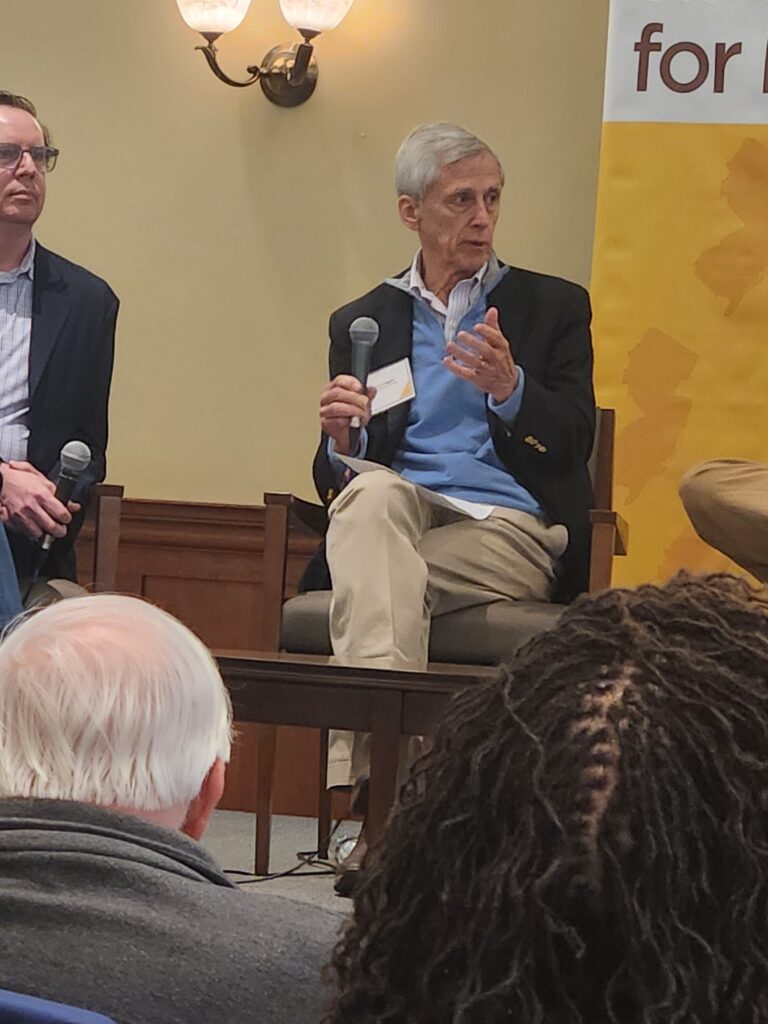
What is real is the challenges facing ethnic-themed publications, particularly in New Jersey. The New Jersey Civic Information Consortium (NJCIC), a state-funded initiative designed to support local journalism and civic information, is facing a critical deadline in the New Jersey state legislature.
Unless the state restores its funding in the upcoming budget, the Consortium may be forced to shut down — and with it, vital support for Black-owned publications and Black journalists, along with other ethnic publications.
“If the state funding is pulled, Black media outlets — many of which are already fighting for survival — will lose one of the only consistent sources of support they’ve had,” said Chris Daggett, board chair and interim executive director of the NJCIC.
“This isn’t just about journalism. It’s about equity. It’s about power. It’s about making sure that Black communities can tell their own stories.”
Since its launch in 2018, the NJCIC has awarded grants to projects that amplify voices left out of mainstream media, particularly in Black and Brown neighborhoods. This includes grants to Black-owned news outlets, youth journalism training in cities like Newark and Camden, and community media projects focused on public health, housing justice, and civic engagement.
The Consortium is one of the first efforts of its kind in the country: a publicly funded journalism initiative created to rebuild the civic infrastructure of New Jersey, especially in news deserts, where local media has collapsed.
“We believe in media by the people, for the people,” said Daggett, one of the conference’s panelists. “Without funding, we are abandoning that promise — especially to Black and Brown residents who’ve been excluded from traditional media coverage for generations,” Daggett added.
Stefanie Murray, director of the Center for Cooperative Media at Montclair State University, echoed that urgency.
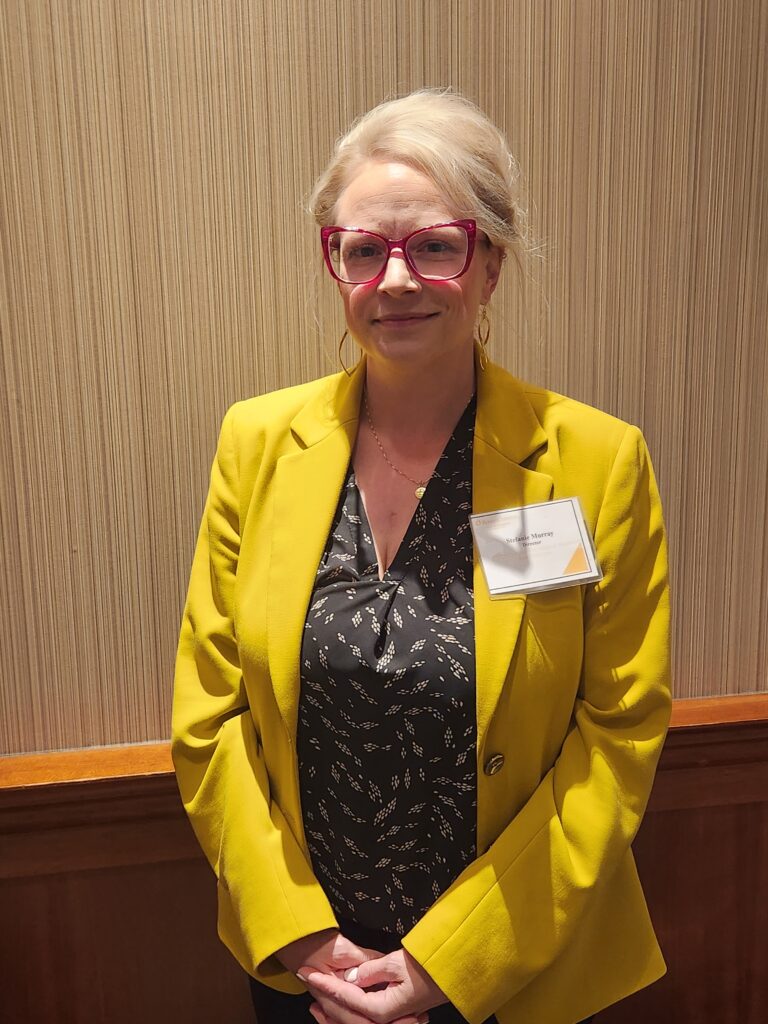
“Black-owned media outlets often don’t get access to the same funding, training, or technology that white-led organizations do,” Murray said. “The NJCIC is one of the few systems we have that actually tries to level the playing field.”
Murray, who spoke on one of the conference’s panels, noted that when local newspapers and TV stations close or consolidate, Black communities are among the first to lose coverage, and the last to be prioritized. Without representation in newsrooms or resources to sustain independent platforms, misinformation and distrust can thrive.
“The danger isn’t just that Black people won’t see themselves in the news,” she continued. “It’s that critical stories — about injustice, health, education, voting — go untold. And when that happens, systems don’t change. Accountability disappears.”
If the NJCIC’s $3 million in state funding is not restored, dozens of projects, including those led by and for Black New Jerseyans, could be discontinued. These include programs that teach young Black students how to become journalists, local radio efforts that connect Black seniors to civic updates, and digital outlets that cover Black entrepreneurship, faith, and culture.
The potential loss comes at a time when artificial intelligence, media consolidation, and Algorithm-driven news feeds are already threatening the visibility of Black voices. As panelists at the conference discussed, AI tools often favor the majority narratives, while social media algorithms push sensationalism over substance — further sidelining community-based reporting.
“Public funding is what gives us the ability to focus on truth, not just clicks,” Murray said. “When we fund Black media, we’re not just preserving history — we’re making sure communities have the tools to shape their future.”
The NJCIC represents a model of what inclusive, accountable journalism can look like. But that model now hangs in the balance.
“For generations, Black people have had to fight to be heard,” Daggett said. “Losing this funding would turn down the volume, right when we need to turn it up.”
With the state budget deadline approaching, advocates hope that legislators will recognize what’s at stake: not just the future of journalism, but the voice of the people, especially Black people in New Jersey.
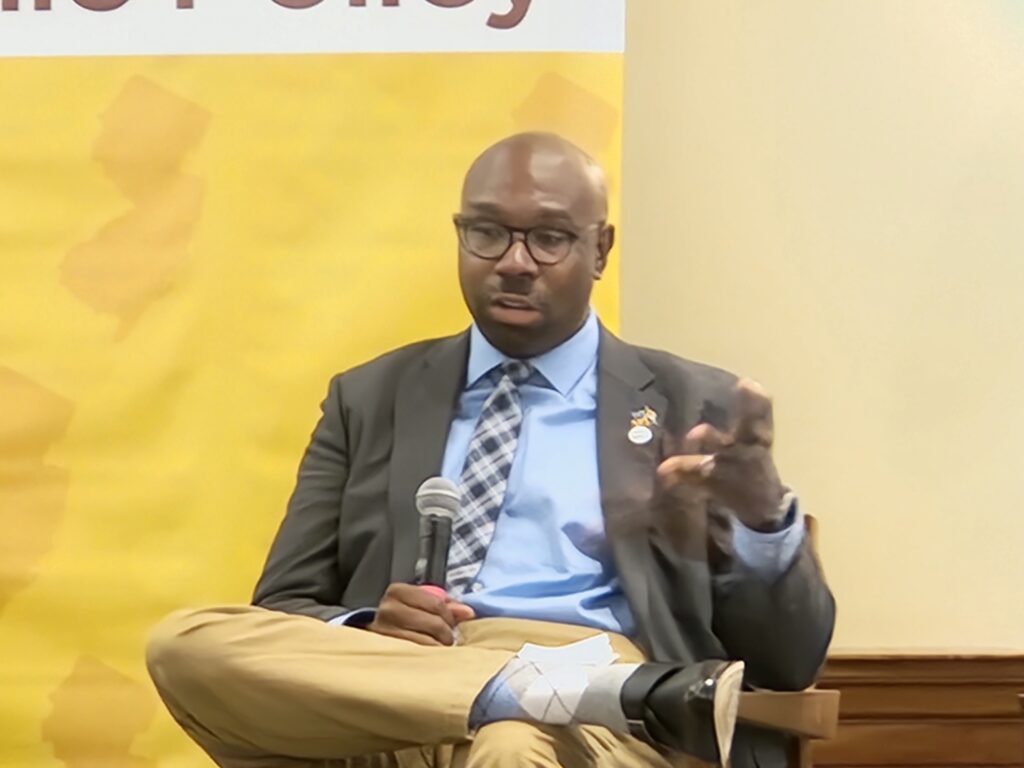
Murray spoke during the conference’s opening panel “New Models: The Expansion of Non-Profit Journalism,” with Ken Herts, of The Lenfest Institute for Journalism, and Amanda Richardson, the executive director of the Corporation for New Jersey Local Media.
Daggett served as a panelist on the session “Journalism in the Public Interest,” with Kenneth Burns, president of the New Jersey Society of Professional Journalists and a reporter at WHYY, and Terrance McDonald, editor of the New Jersey Monitor.
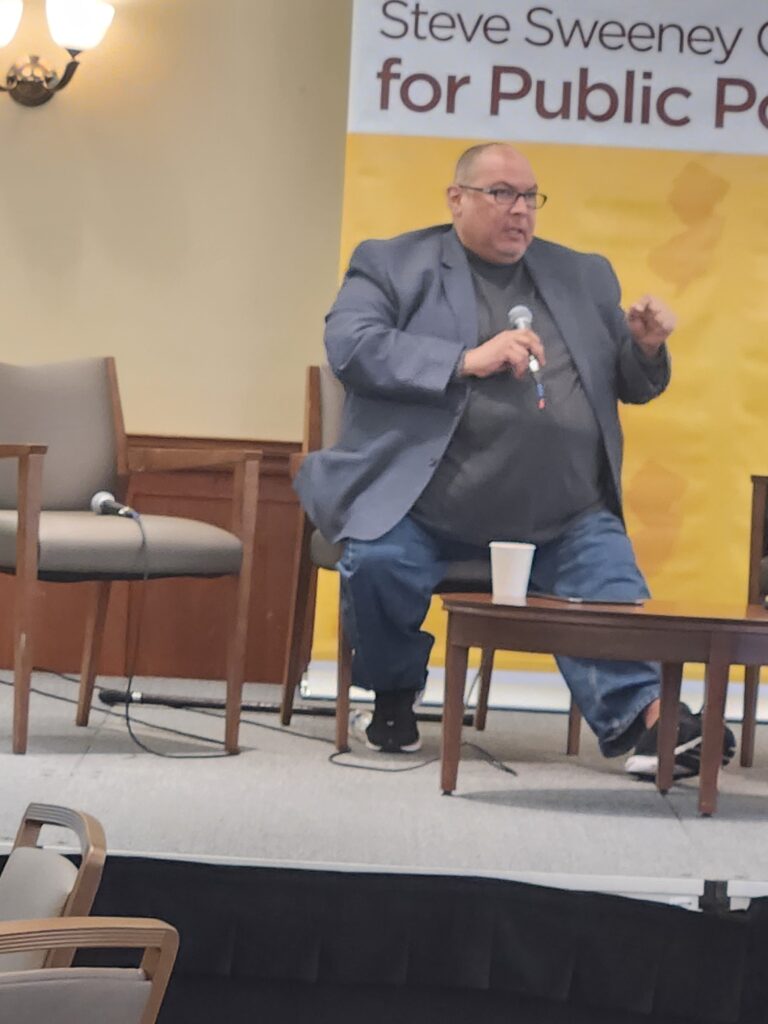
A session on “The Impact of the Digital Transformation on New Jersey News,” was heard from Enrique Lavin, the Online News editor for NJ.com; Marc Pfeifer, of Rutgers University and Michael Shapiro, founder and CEO of Tapinto.net.
David Cruz, NJTV senior correspondent, keynoted the closing session “The Transformation and Future of New Jersey Journalism.” Mark Magyar, director of the Sweeney Center, served as moderator for the conference.
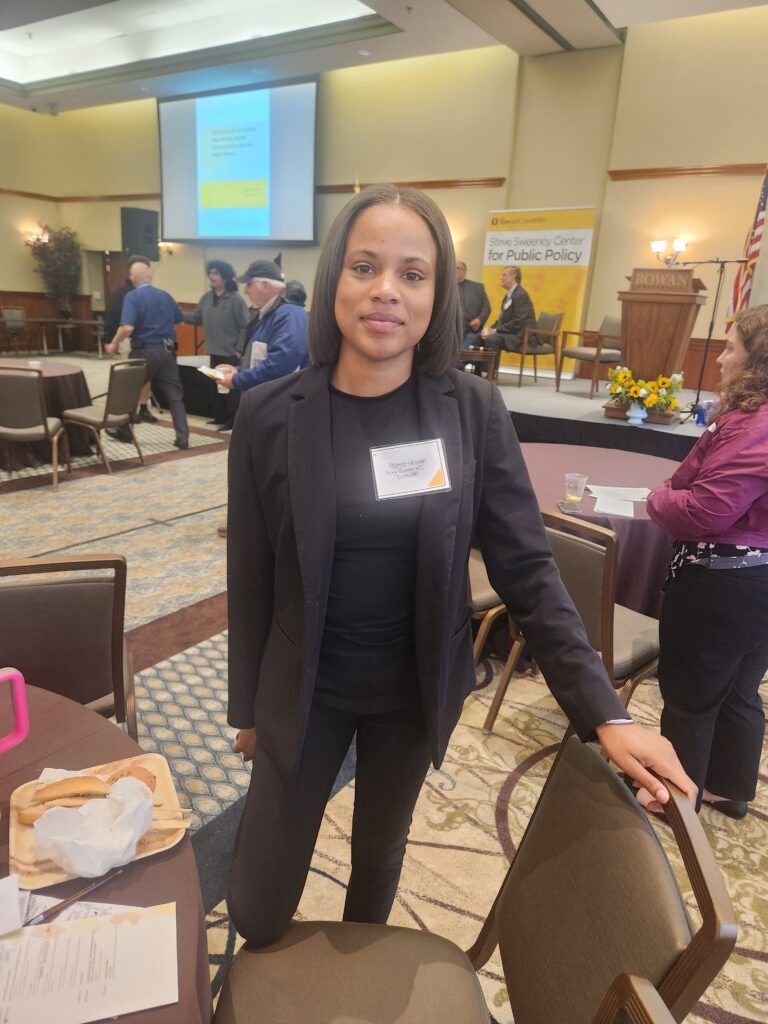
EDITOR’S NOTE: Essence Holman is a passionate storyteller from Camden. She attends Rowan University, where she majors in journalism and minors in public relations, using her voice to uplift her community through meaningful connections and words. This is her first story for FRNJ.
Follow Us Today On:
Note from AC JosepH Media: If you like this story and others posted on Front Runner New Jersey.com, lend us a hand so we can keep producing articles like these for New Jersey and the world to see. Click on SUPPORT FRNJ and make a contribution that will go directly in making more stories like this available. Thank you for reading!




